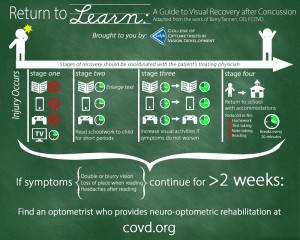
Book Review: Train Your Mind Change Your Brain By Sharon Begley
Written by: Jennifer S. Simonson, OD, FCOVD
Train Your Mind, Change Your Brain discusses neuroplasticity, the ability to create new neurons and synaptic connections, changing both the structure and function of the brain. Until recently, scientists did not believe that the adult brain had the capacity to physically rewire itself, only strengthen its current synapses. Sharon Begley, a science columnist for Newsweek, writes of the recent developments in neuroscience, reporting on scientific studies and the presentations given at the 2004 Mind and Life Institute on Neuroplasticity.
The Mind and Life Conference is a forum between scientists and the Dalai Lama to discuss new discoveries and their implication in Buddhism. The topic of neuroplasticity gives support with the Buddhist belief that training the mind can change the physical brain. Research studies on Buddhist monks who have completed extensive hours of meditation show exceptional brain changes on functional MRI. Begley notes that this study and others show that the brain changes most significantly when the subject is highly attentive to the training.
Several vision studies are referenced in the text and listed in the book’s index, making this book highly relevant to optometry. Chapter 4, titled “Hearing Sight and Seeing Sound,” covers research with deaf subjects, showing that their ‘where’ visual processing pathway is enhanced. This allows them to experience “better detection of motion and better peripheral vision.” In another study with blind subjects, the visual cortex was activated when the volunteers “read” Braille. This supports the idea that the visual cortex does not specialize from genetic programming, but is mapped from environmental input. If a person’s experience develops the specialization of the brain’s circuitry, then there is potential for the brain to change not only from the influence of the outside world, but also from thoughts of the mind.
For anyone interested in vision therapy, rehabilitation, or development, the research in this book shows that patients of all ages are capable of developing better neuronal connections and to recruit other brain areas to process visual information with mental effort. Sensory experience and mental activity reshape the brain. Train Your Mind Change Your Brain discusses fascinating advancements in the understanding of brain function and includes references for all of the research reported in the book.




Notes:
Please contact us with any questions you might have at bouldervt@yahoo.com.